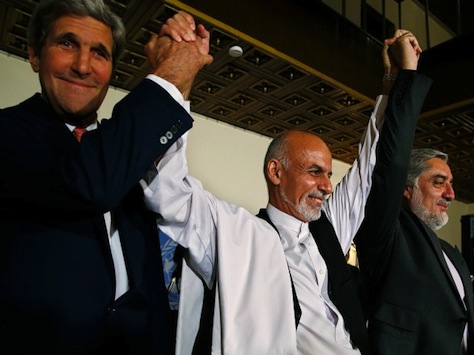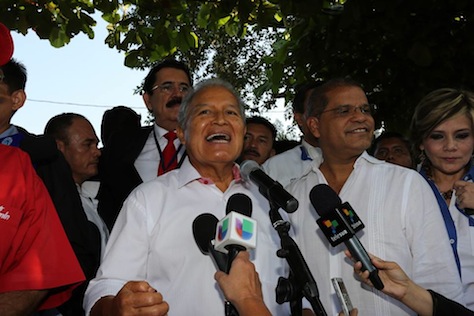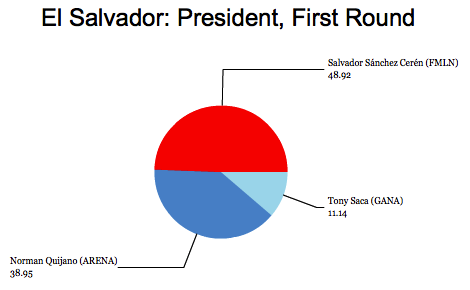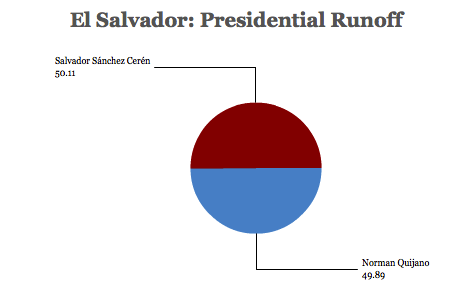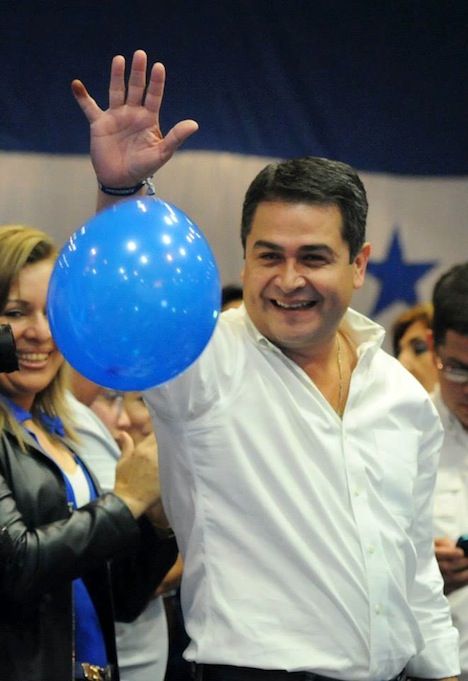It’s hard, exactly, to pinpoint the exact moment when Afghanistan’s presidential election became a complete absurdity.![]()
With a US-brokered audit process of the election already behind schedule, and with outgoing president Hamid Karzai declaring September 2 as the swearing-in day for the country’s next leader, the election process suffered yet another blow on Wednesday when Abdullah Abdullah, a former foreign minister and the winner of the election’s first round, angrily pulled out of a UN-led audit process that’s designed to validate the results of Afghanistan’s June presidential election.
As next week’s deadline approaches and the United Nations continues the vote audit, Abdullah is expected to meet with his rival, Ashraf Ghani Ahmadzai (pictured above, center, with Kerry, left, and Abdullah, right) as well as US officials who are desperate to bring the two candidates into a national unity government.
Despite the last-minute talks, it’s hard to think of a recent national election that has been so thoroughly botched — with such dire consequences for the country’s future.
In 2014 alone, Egypt and Syria held non-credible presidential votes and parliamentary elections in Iraq and Libya were overshadowed by the breakdown of any semblance of national order.
It’s been a difficult summer for US president Barack Obama and US foreign policy interests — the ongoing tensions between Ukraine and Russia threaten Europe’s security, the rise of the Islamic State (IS/ISIS/ISIL) in Sunni Iraq and Syria goaded US military strikes in retaliation, and Israel’s summer war against Hamas in the Gaza Strip destroyed two years of efforts by US secretary of state John Kerry to pursue an Israeli-Palestinian peace deal.
But Afghanistan’s growing political and security crisis represents a fourth major foreign policy headache for Kerry and the rest of the Obama administration.
* * * * *
RELATED: Afghanistan hopes for calm as key presidential election approaches
RELATED: Is Ghani’s Afghan preliminary electoral victory a fraud?
RELATED: Will Kerry’s deal with Afghanistan’s
presidential contenders work?
* * * * *
Though the audit is only slightly more than two-thirds complete, a premature inauguration of either candidate next week could splinter Afghanistan on ethnic lines, giving the next presidential administration virtually no hope of uniting a country already struggling to combat a Taliban-led insurgency.
Months of post-election accusations between the Ghani and Abdullah camps have polarized Afghanistan more than ever. What’s so staggering is that Afghanistan’s election season started off on such promising terms. Continue reading Afghanistan’s election becomes a farce — and a US policy disaster
